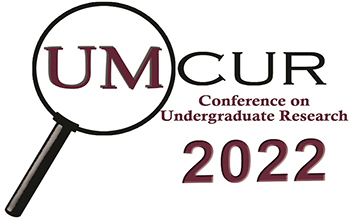Assessment of Youth Sport Related Concussion Management Practices in Montana
Abstract / Artist's Statement
With the rising incidence of sport related concussion, the need for multidisciplinary team-based care is more important than ever to ensure the athlete’s successful recovery. Additionally, providing communities with the best evidence and resources are critical to implementing current concussion management strategies in the community. Providing individualized care plans and proper support during the recovery process facilitates communication and reduces fears often associated with head injuries. Even if recovery goes smoothly, parents find the recovery process often challenging and frightening not knowing what to expect. Improving education and communication between families, schools and the medical providers will alleviate some of these fears. However, this is often a significant challenge in rural states like Montana, where there are limited resources and access to healthcare professionals trained in current concussion management practices. Therefore, the purpose of this study was to gain a better understanding of current concussion management practices in Montana among healthcare professionals. An electronic survey was sent to healthcare professionals across Montana via Qualtrics soliciting information about the practice location (rural vs urban), estimation of how many sports related concussions they manage each year, current resources used in assessment and management of sports related concussions, other healthcare professionals they collaborate with in the management process and interest in obtaining other concussion management resources. Results from the survey suggest that most healthcare professionals use a team-based approach to concussion management, utilizing a variety of assessments and resources to provide patient care. However, most of the participants identified significant barriers in communication between healthcare professionals, families, schools, and coaches which can negatively influence the patient’s recovery. Participants also identified that digital and print resources with home instructions for patients and families are needed to enhance their concussion management practices, in addition to virtual training on current concussion diagnosis and management techniques.
Assessment of Youth Sport Related Concussion Management Practices in Montana
UC South Ballroom
With the rising incidence of sport related concussion, the need for multidisciplinary team-based care is more important than ever to ensure the athlete’s successful recovery. Additionally, providing communities with the best evidence and resources are critical to implementing current concussion management strategies in the community. Providing individualized care plans and proper support during the recovery process facilitates communication and reduces fears often associated with head injuries. Even if recovery goes smoothly, parents find the recovery process often challenging and frightening not knowing what to expect. Improving education and communication between families, schools and the medical providers will alleviate some of these fears. However, this is often a significant challenge in rural states like Montana, where there are limited resources and access to healthcare professionals trained in current concussion management practices. Therefore, the purpose of this study was to gain a better understanding of current concussion management practices in Montana among healthcare professionals. An electronic survey was sent to healthcare professionals across Montana via Qualtrics soliciting information about the practice location (rural vs urban), estimation of how many sports related concussions they manage each year, current resources used in assessment and management of sports related concussions, other healthcare professionals they collaborate with in the management process and interest in obtaining other concussion management resources. Results from the survey suggest that most healthcare professionals use a team-based approach to concussion management, utilizing a variety of assessments and resources to provide patient care. However, most of the participants identified significant barriers in communication between healthcare professionals, families, schools, and coaches which can negatively influence the patient’s recovery. Participants also identified that digital and print resources with home instructions for patients and families are needed to enhance their concussion management practices, in addition to virtual training on current concussion diagnosis and management techniques.
